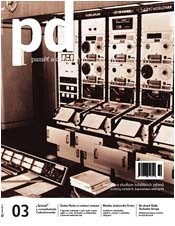„Špionáž“ v normalizačním Československu
Espionage in Czechoslovakia at the time of normalization
Author(s): Prokop TomekSubject(s): History
Published by: Ústav pro studium totalitních režimů
Summary/Abstract: The 1970s and 1980s in Czechoslovakia are known as the period of normalization. It is sometimes claimed that in contrast to the 1950s, this time was not characterized by any severe repression. However, we may find evidence to the contrary when searching in the dark corners of the communist past. The most severe penalties were imposed for espionage, which was considered the gravest offence against the Republic (Section 105 of the Penal Code). The severity of sentence for a completed act ranged from 10 to 15 years of imprisonment, and even capital punishment could be imposed. Less severe penalties were administered in cases of attempted offences of this kind or their preparation. An “average” penalty was around 10 years imprisonment, often in the most severe 3rd category of correctional institution. A release on probation could be considered only after two thirds of the sentence had been served, but it was granted rather scarcely due to the length of the sentence. A number of people condemned for this kind of offence were thus released from prison only in the spring of 1990. Under the conditions of Czechoslovak normalization, the basically legitimate need to protect information that was important for state security interests thus turned into an instrument of persecution. The elastic wording and interpretation of the law allowed for its Section 105 to be used on purpose. It may come as a surprise that suspicion of espionage was the most frequent reason for the State Security (StB) to take an active interest in a citizen and launch the so-called investigation. For illustration, a total of 1788 cases were being worked out by StB on a national basis on December 31, 1975, of which 397 cases, i.e. 22 per cent, concerned suspected espionage. Yet the StB operative staff were able to submit only 190 motions to commence proceedings in the same year, and only seven of these motions concerned the crime of espionage (23 cases related to the criminal offence of illegally leaving the Republic, 14 concerned defamation of a state representative, 11 cases concerned sedition, etc.). From the mid-1970s to the mid-1980s, the number of espionage cases under investigation ranged between 400 to 600 a year, with only a small number of them leading to imprisonment. The presented information about the number of cases nevertheless indicates how many people were encircled by the invisible network of StB secret agents, how many people were screened, watched and bugged. Prokop Tomek’s study exposes concrete cases in order to reveal the procedures used by StB to “produce” suspects. It also provides an overview of the employed practices that were illegal even under socialist law, and introduces the victims of this licence – people who were called “spies” but were mostly innocent and only fell victim to StB provocation.
Journal: Paměť a dějiny
- Issue Year: II/2008
- Issue No: 03
- Page Range: 5-24
- Page Count: 20
- Language: Czech

